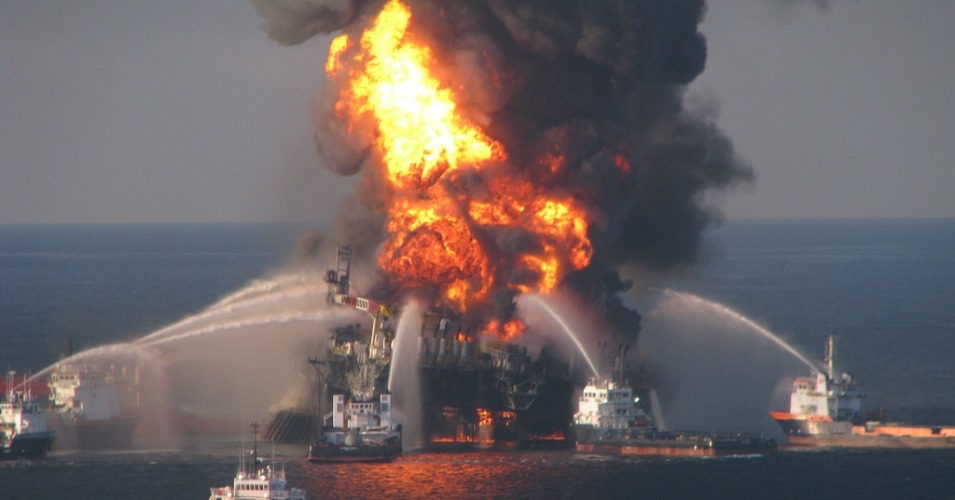The U.S. is set to announce new regulations on offshore oil and gas drilling as an increased safeguard against disasters like the 2010 Deepwater Horizon spill in the Gulf of Mexico, according to reports from Obama administration officials who spoke to the New York Timeson Friday.
The announcement, which could come as soon as Monday, is set to be timed with the five-year anniversary of the spill, which killed 11 people and poured millions of barrels of oil into the ocean.
However, environmental organizations remained unconvinced, particularly as the new rules follow President Barack Obama’s stated support of expanded drilling operations in the Arctic and Atlantic.
Bob Deans, a spokesperson for the Natural Resources Defense Council (NRDC), told theTimes, “Industry and government have taken measures over the past five years to reduce some of the risk in what is an inherently dangerous operation at sea. That’s a far cry from saying it’s safe. And the last thing we need is to expose Atlantic or Arctic waters to a BP-style blowout.”
The regulations are reportedly the biggest to be put forward by the Obama administration in response to the spill and include stricter safety requirements on blowout preventers—the “last line of protection to stop explosions in undersea oil and gas wells,” which played a main role in the 2010 disaster when a supposedly fail-safe blowout preventer malfunctioned, the Times writes.
However, as noted by climate activists, “a panel appointed by President Obama to investigate the spill concluded that the chief cause of the disaster, which left the Gulf Coast soaked in black tar, was not the blowout preventer but a broad systemic failure of oversight by the companies involved in drilling the well and the government regulators assigned to police them.”
Brian Palmer, science writer for the NRDC, noted on Friday that five years after the spill was finally contained, “Experts still don’t agree on the amount of oil that gushed into the Gulf—but everyone knows it was a lot.”
The top offshore drilling regulator at the time of the disaster, Liz Birnbaum, told NRDC last month that continued oil exploration in the Atlantic is “a mistake.”
“[W]e have long since reached the point where we should stop drilling for new supplies of oil,” Birnbaum said. “We must make a serious worldwide commitment to transition away from fossil fuels and allow existing reserves to supply our needs during that transition.”
As Common Dreams previously reported, the news that the U.S. Department of the Interior upheld a 2008 lease sale on the Arctic’s Chuchki Sea, despite a spill risk of 75 percent or more, was met with outrage by environmental organizations.
“It is unconscionable that the federal government is willing to risk the health and safety of the people and wildlife that live near and within the Chukchi Sea for Shell’s reckless pursuit of oil,” Friends of the Earth climate campaigner Marissa Knodel said at the time. “Shell’s dismal record of safety violations and accidents, coupled with the inability to clean up or contain an oil spill in the remote, dangerous Arctic waters, equals a disaster waiting to happen.”


